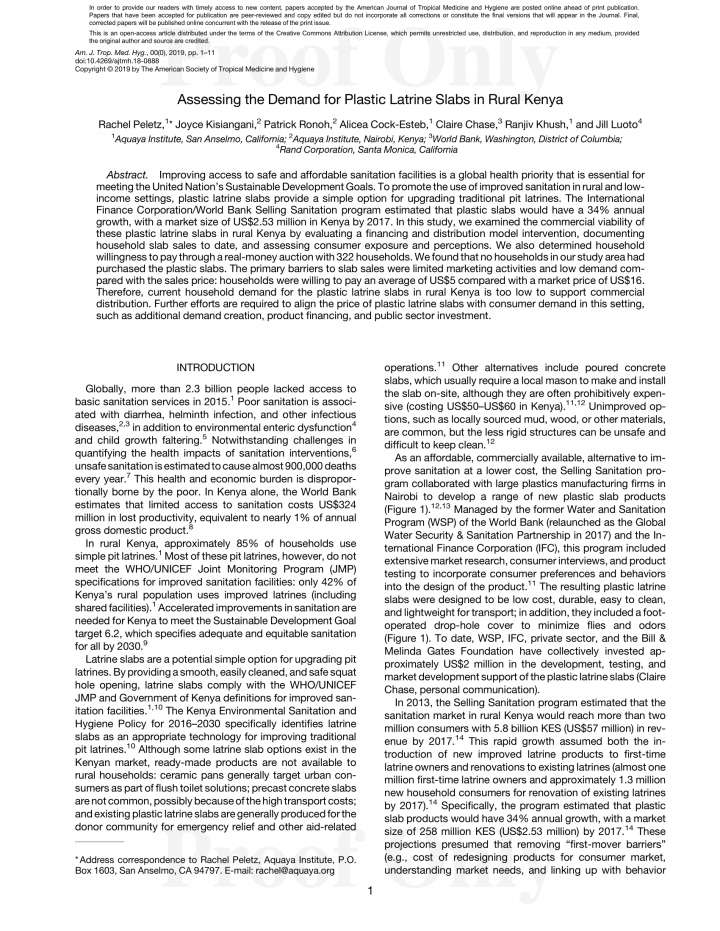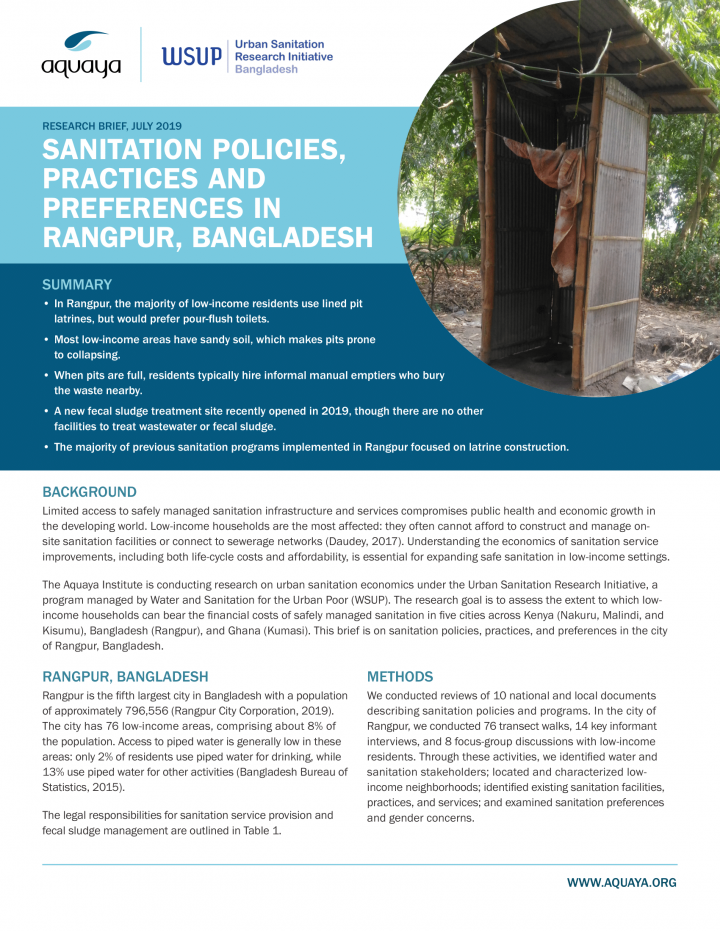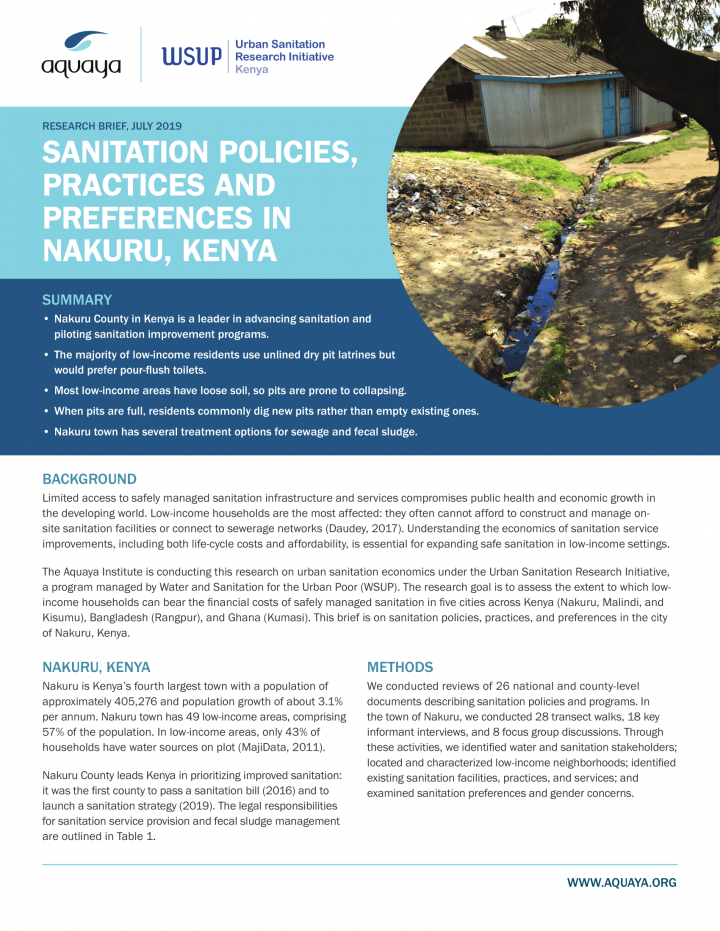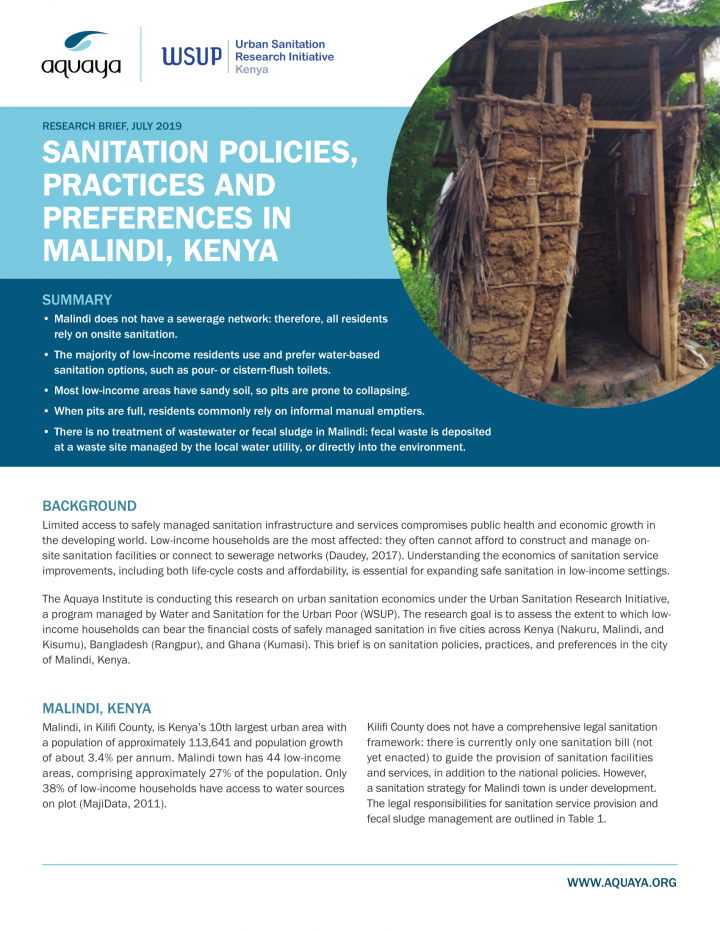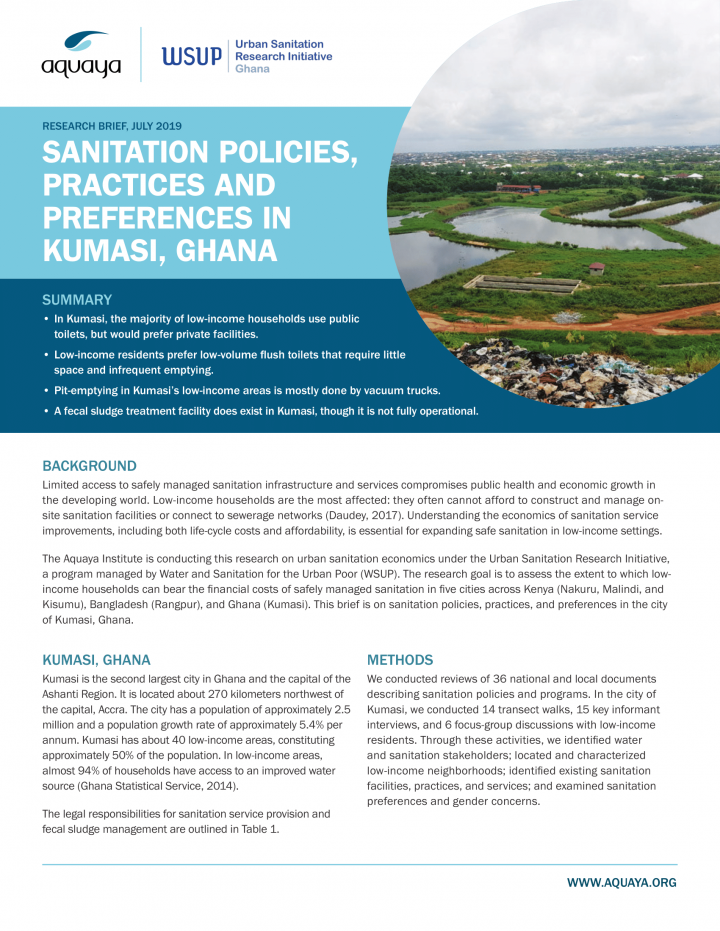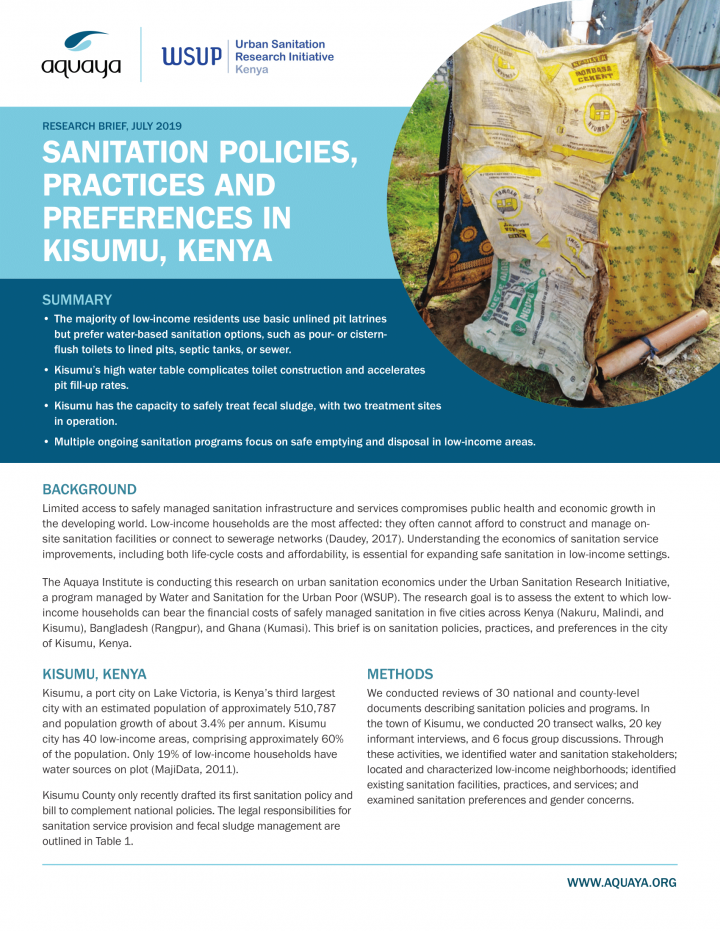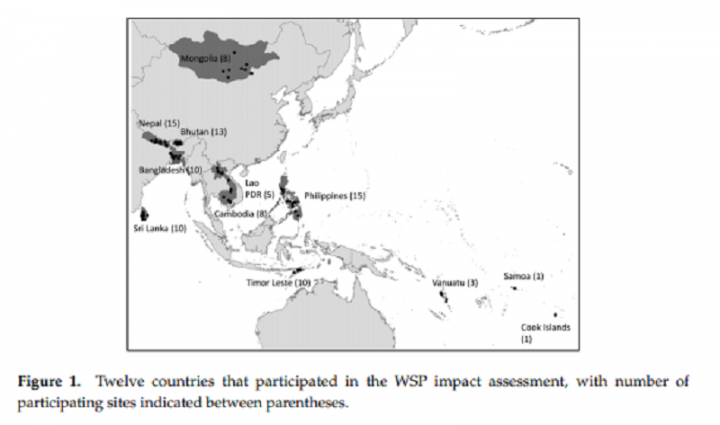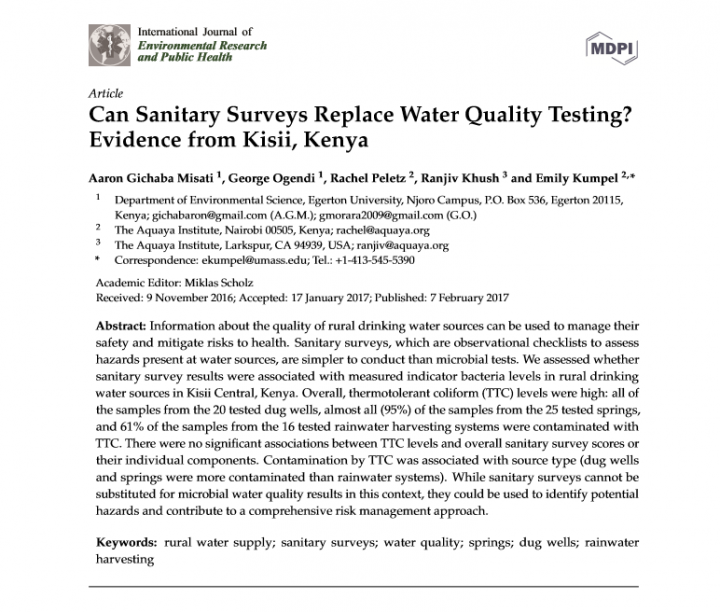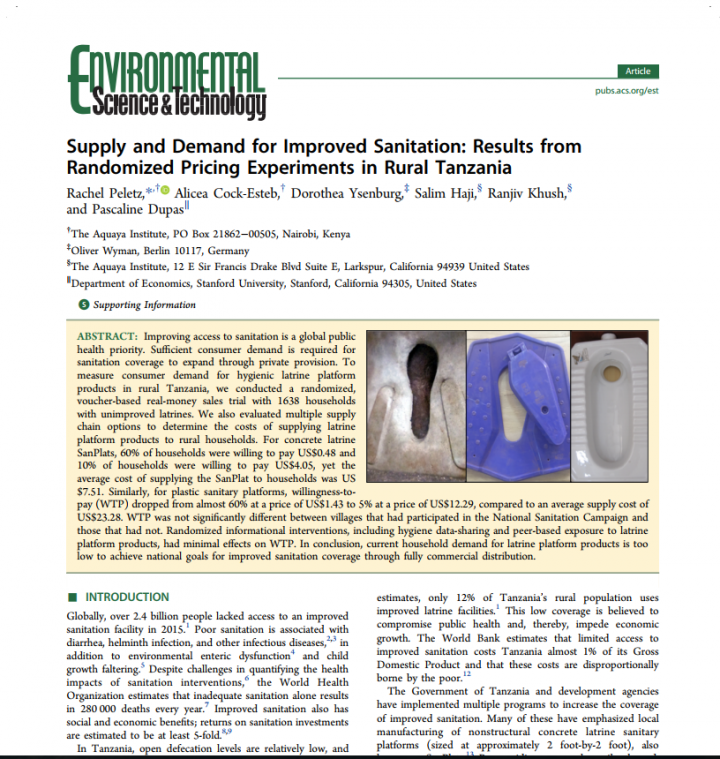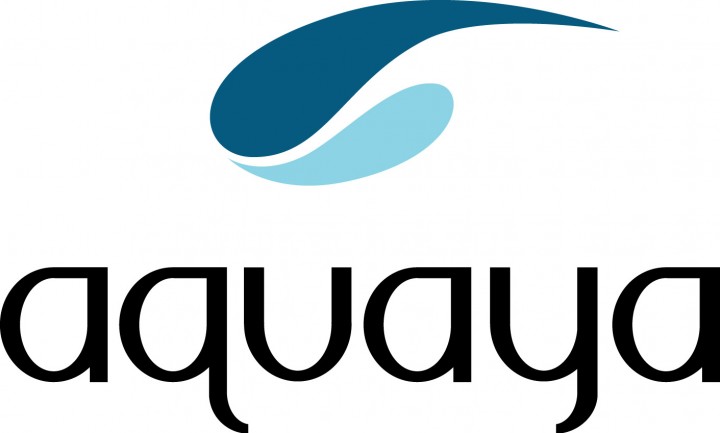
The Aquaya Institute is a non-profit research and consulting organization dedicated to expanding safe water and sanitation access in developing countries through science and innovation. We deliver the knowledge and tools that are required to achieve universal access to safe water and sanitation.
Information on external websites
Countries of activity
Location of projects and headquarters
Projects in SuSanA database: 8
2018 - 2019
Urban Sanitation Economics
Measure and compare the full life-cycle costs of high-quality sanitation products and services with willingness-to-pay for these products and services by low-income households.
Through their Urban Sanitation Research Initiative, Water and Sanitation for the Urban Poor (WSUP) has commissioned Aquaya to measure and compare the full life-cycle costs of high-quality sanitation products and services with willingness-to-pay for these products and services by low-income households. This research will be conducted in a single …
2014 - 2015
The Market for Rural Sanitation, Tanzania
What is the willingness-to-pay for improved sanitation flooring in rural Tanzania?
With support from the Water and Sanitation Program of the World Bank, Aquaya investigated supply chains for improved latrine slabs in rural Tanzania and measured consumer willingness-to-pay for different latrine slab products among 1, 500 randomly selected households in two districts. Forty village-level retailers also participated in the …
2015 - 2017
Evaluating Marketing Strategies for Rural Sanitation Products
What are effective marketing strategies, health benefits, and consumers' willingness-to-pay for plastic latrine slabs in Kenya?
In collaboration with the Water and Sanitation Program of the World Bank, Aquaya developed and conducted a randomized controlled trial in rural Kenya aimed to compare different marketing strategies for plastic latrine slabs and assess their health benefits. This study supported the Water and Sanitation Program’s ‘Selling Sanitation’ …
Project year: 2017
Pro-Poor Sanitation Surcharges in Kenyan Cities
Are wealthier urban residents able and willing to pay more for sewerage in low-income areas?
The safe management of fecal waste is a major public health and economic challenge in most cities of the developing world. Coping with poor sewerage infrastructure and rapid population growth will require significant investments in both standard waste water treatment systems and on-site fecal sludge containment and removal. The objective of this …
Project year: 2017
Sanitation value chain study in rural areas and small towns in Haiti
What are the existing challenges and opportunities along the sanitation chain in rural Haiti?
Aquaya designed and executed a value chain analysis on sanitation products and services available in small towns and rural areas in Haiti. The study was conducted at national level; however a special focus was placed on the Centre, Sud, Grande Anse and Nippes departments where more intensive supply-chain strengthening activities will take place …
Project year: 2017
FSM Assessment - Port Harcourt, Nigeria
What is the existing fecal sludge management in Port Harcourt and how can it be improved?
Santiation services in Port Harcourt, Nigeria are limited. Most residents in formal city neighborhoods maintain their own septic tanks, very often emptying the contents in illegal dump sites. Residents of informal settlements use hanging piers or ‘flying toilets’. Waste is not being safely managed across most of Port Harcourt. We aim to …
2016 - 2021
WASHPaLS
What sanitation interventions have been effective in increasing access to improved sanitation globally?
Aquaya was selected in conjunction with Tetra Tech, FHI 360, and FSG (India), to lead a USAID market-based sanitation analysis over the coming 5 years. The goal of the program is to strengthen USAID’s WASH programming at a country level and enhance global learning and adoption of the evidence-based programmatic foundations needed to achieve of …
2012 - 2021
Monitoring for Safe Water - Cash on delivery for water quality testing
To improve the public health outcomes of water, sanitation and hygiene programs in sub-Saharan Africa by developing evidence-based strategies for efficient, accurate and systematic microbial water quality testing.
Microbial water quality is a major public health indicator reflecting, among other things, the efficacy of sanitation projects and the level of sanitation that has or hasn’t been achieved in a particular setting. MfSW seeks to answer the question: Why doesn’t microbial water quality testing meet regulatory requirements in sub-Saharan Africa? …
Added to library: 9
Filter tags
International NGO

Aquaya Institute
Riara Corporate Suites, #203, Riara Road
00505 Nairobi
Kenya
visit the website
Login for more
Projects: 8
Events:0
Added to library: 9
Partner since: 2017

